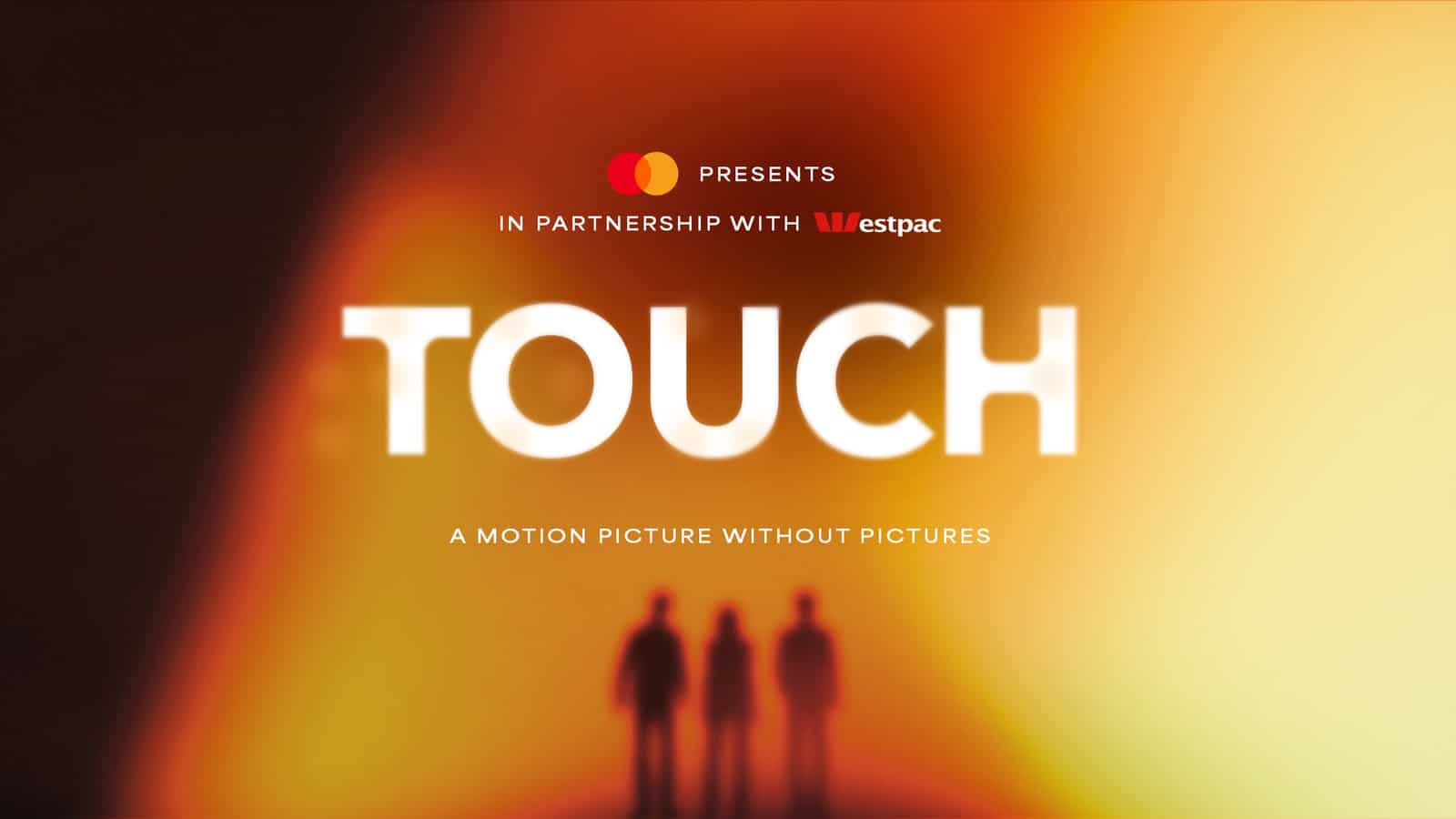Mastercard and Westpac have joined forces to create Australia’s first-ever pictureless feature-length film using only the power of sound.
The film, ‘TOUCH’, follows a young man who embarks on an epic adventure through his father’s memory after an experiment goes wrong and he gets trapped in his father’s mind.
The aim is to create an inclusive experience that fits within Mastercard’s mission to power an inclusive digital economy. It is part of the brand’s commitment to creating sensory and sonic branding experiences.
The film follows the launch of Mastercard’s accessible cards in Australia, which were launched with Westpac. The Mastercard Touch Card features distinct tactile notches to help people who are blind or low-sighted identify and differentiate their credit, debit and prepaid cards.
The film will premiere at a special event at Westpac OpenAir on 13 February, which will feature an accessible box office experience in collaboration with Humanitix.
The film was directed by award-winning director Tony Krawitz (‘Into the Night,’ Jewboy,’ ‘The Tall Man’) and features globally recognised talent, including sound editor Wayne Pashley (‘Elvis’, Mad ‘Max: Fury Road,’ ‘The Lego Movie’) and composer Jonathan Dreyfus (‘A Night of Horror,’ ‘Fat Legs,’).
Mastercard worked with the inclusive filmmaking organisation Bus Stop Films and liaised with people who are blind and low vision to inform and direct the outcome of the film.
Julie Nestor, executive vice president of marketing and communications, Asia Pacific, Mastercard, said, “Mastercard believes innovation should always be driven by the impulse to include. By leveraging the power of sound, Mastercard is aiming to create an immersive experience transcending visual boundaries and redefining storytelling in cinema.”
Majella Knobel, Westpac head of access & inclusion, said, “In addition to the film itself, an important part of this project was making sure the needs of many individuals were considered as part of the end- to-end cinema experience – from accessible amenities to accommodating guide dogs. This is such an important and influential topic, and it’s been wonderful collaborating with Mastercard and OpenAir to ensure a broad diversity of needs have been considered as a common thread throughout the entire conversation.”
Director Tony Krawitz described the film as “a one-of-a-kind story that explores a man’s mind, his memories, his tics – all without images.” “The film has been designed for people to enjoy, and to enable people to experience what it’s like not to have your vision to orient you. To make the audienceuse their ears as if they’re detectives, gripped by what’s going to happen next, said Krawitz.
Benjamin Phillips, Krawitz’s attachment, an actor from Offspring and aspiring film director, said, “For those like myself who are blind, our appreciation of film often relies heavily upon the audio experience, so when a film’s sound evokes emotion, it can paint a colourful picture in our imagination. Working on TOUCH has allowed me to collaborate creatively on such an inclusive film, unlock opportunities in production, and showcase to Australia how content can be experienced without the limitations of ability or disability.”
Deb Deshayes, CEO of Blind Citizens Australia, which consulted on TOUCH, said, “It’s crucial to have entertainment that not only considers people who are blind or vision impaired but also involves them in the whole development process. To have a film like TOUCH is an important step towards building a more inclusive future that will allow 500,000+ Australians to enjoy content like everyone else. For people who are blind or vision impaired, movies like this and the use of audio description make a huge difference to how we engage with media and socialise with our peers.”
